Negotiators geared up for a crucial weekend of Gaza ceasefire talks Saturday, as Hamas said it was sending delegates to Cairo but would not participate in the discussions, and fighting raged in the Palestinian territory.
The United States, Egypt and Qatar have spent months trying to broker an end to the war in Gaza between Hamas Palestinian militants and Israel.
The war, sparked by Hamas’s unprecedented October 7 attack on Israel, has devastated Gaza, displaced nearly all of its population at least once and triggered a humanitarian crisis.
The White House said progress had been made at the latest round this week, although the possible permanent presence of Israeli troops along the Gaza-Egypt border has emerged as a major sticking point.
Previous bouts of optimism during months of on-off ceasefire and hostage release negotiations have always proven unfounded.
A senior Hamas official said a delegation from the Islamist group was heading to Cairo, but that they would not engage in the talks. Instead, they would meet with senior Egyptian officials for updates on the negotiations.
The delegation would “be briefed… but this does not mean it will take part in the negotiations”, the official told AFP, speaking on condition of anonymity.
The official said Hamas would insist Israel withdraw all its forces from all of Gaza, including “from the border area with Egypt”, known as the Philadelphi Corridor.
The basis of the talks is a framework which US President Joe Biden outlined on May 31, and which he described as an Israeli proposal.
A second Hamas official on Saturday reiterated that “the leadership of Hamas, including its leader Yahya Sinwar” had already agreed to the Biden plan and want it put into effect without “amendment of its wording.”
The three-phase plan outlined by Biden and endorsed by the UN Security Council would initially see hostages exchanged for Palestinians in Israeli jails during what Biden called a “full and complete ceasefire” lasting six weeks.
Israeli Prime Minister Benjamin Netanyahu has since insisted on keeping troops along the corridor, arguing Israel needs to prevent Hamas from rebuilding its strength by smuggling in arms from Egypt.
The White House said CIA chief William Burns was among US officials taking part in the Cairo talks, alongside the heads of Israel’s spy agency and domestic security service.
An Egyptian source close to the talks said the United States was “discussing with mediators new proposals to bridge the gap between Israel and Hamas”.
The source said Sunday’s “enlarged round of negotiations” would be a “pivotal step in formulating an agreement that will be announced if Washington can pressure Netanyahu.”
Fighting raged in Gaza on Saturday, with AFP correspondents and civil defence rescue sources reporting ongoing Israeli artillery fire and air strikes across the Hamas-run territory.
In Gaza City’s Zeitun neighbourhood, gunfire and explosions echoed as Palestinian militants clashed with Israeli soldiers, an AFP correspondent added.
An overnight strike on a house west of Khan Yunis in southern Gaza killed 11 people, including a woman and four children, a doctor at Nasser Hospital said.
Hamas-run Gaza’s health ministry on Saturday reported 69 deaths in the previous 48 hours.
The Israeli military said it “eliminated” dozens of militants in close-quarters combat and strikes in the Tal al-Sultan area of Rafah over the past day.
Tens of thousands of civilians were on the move from Deir el-Balah and Khan Yunis after Israeli evacuation orders, which precede military operations, the United Nations said on Thursday.
Hamas’s October 7 attack on southern Israel resulted in the deaths of 1,199 people, most of them civilians, according to an AFP tally based on Israeli official figures.
Israel’s retaliatory military campaign has killed 40,334 Palestinians in Gaza, according to Gaza’s health ministry, which does not give details of civilian and militant deaths.
The UN rights office says most of the dead are women and children.
Palestinian militants also seized 251 hostages, of whom 105 remain in Gaza, including 34 the military says are dead.
Israel’s military recovered the remains of six hostages from a tunnel in the Khan Yunis area this week, and said bullets were found in their bodies.
Netanyahu faces regular protests by hostage supporters demanding a deal to bring them home.
Efforts to reach a Gaza truce and avert a wider war intensified after the killings of two senior Iran-backed militants last month sparked threats of reprisals from Tehran and allies including Lebanon’s Hezbollah movement, who blamed Israel.
As the threats rise, some Israelis have taken matters into their own hands by building bomb shelters at home, after putting it off for years.
“We now worry more, because Hezbollah can reach us with their missiles,” said 79-year-old Jeff Lederer, a family doctor in Tel Mond, north of Tel Aviv. “We are also afraid of being shot at by Iran.”
Gazans said they were desperate for an end to the war.
“We are tired and hope that the negotiations persist, the siege is lifted, and the war stops,” Umm Muhammad Wadi, a displaced woman in Deir el-Balah, told AFP.
AFP
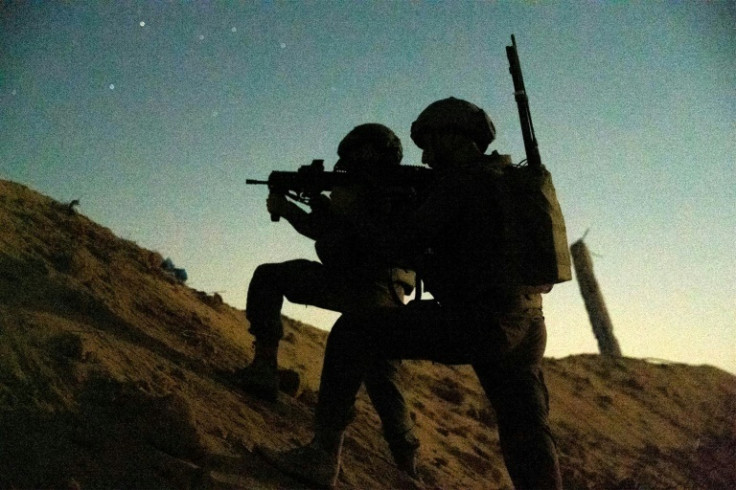
AFP
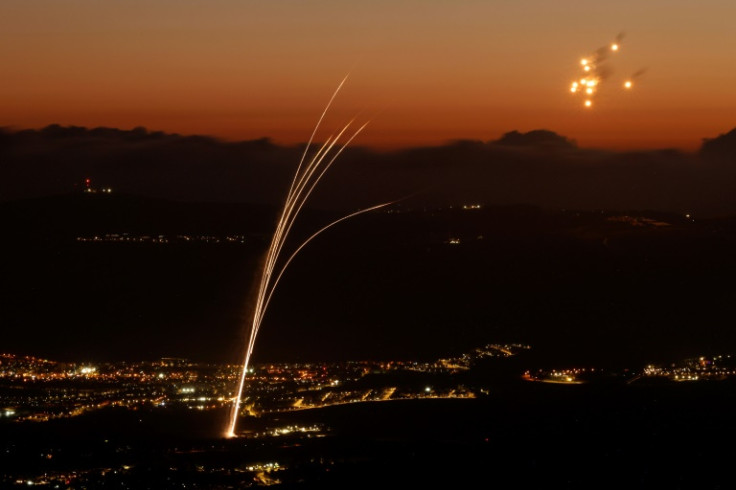
AFP
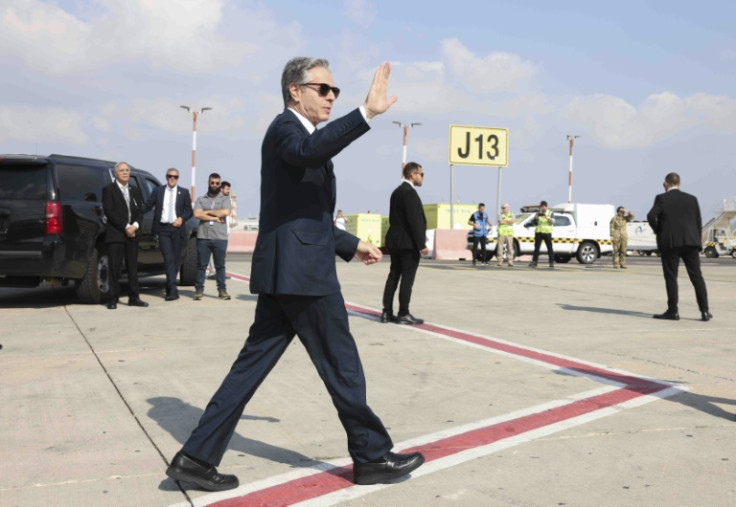
AFP
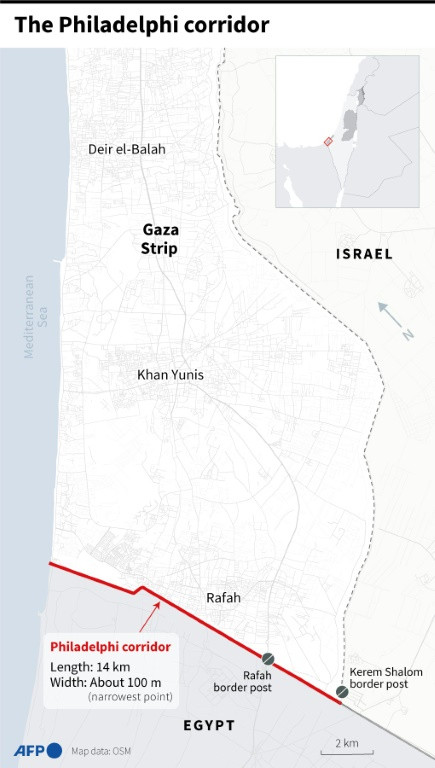
AFP










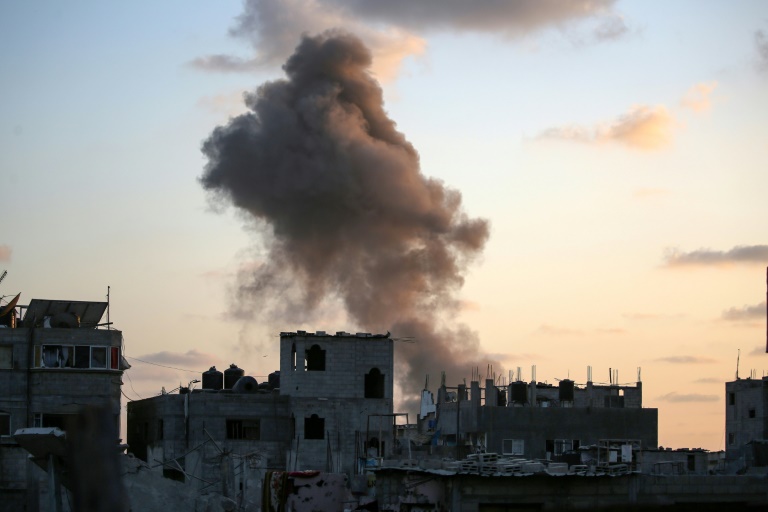








/cdn.vox-cdn.com/uploads/chorus_asset/file/24774108/STK156_Instagram_threads_3.jpg)

Discussion about this post